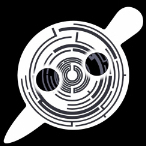-
Similar Content
-
- 55 replies
- 3,698 views
-
- 32 replies
- 691 views
-
- 82 replies
- 4,896 views
-
- 71 replies
- 3,922 views
-
- 11 replies
- 471 views
-
-
Recently Browsing 0 members
- No registered users viewing this page.







Recommended Posts
Create an account or sign in to comment
You need to be a member in order to leave a comment
Create an account
Sign up for a new account in our community. It's easy!
Join the herd!Sign in
Already have an account? Sign in here.
Sign In Now